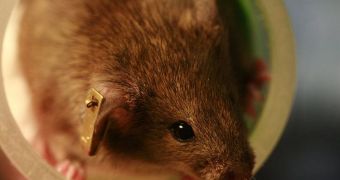Investigators at the University of California in San Francisco say that a drug which has already been approved by the US Food and Drug Administration may be used to prevent relapse in male alcoholics who come under a lot of stress.
This is one of the most important factors determining the number of former alcoholics that will relapse in their old ways. Interestingly, the correlation between stress and booze does not seem to affect women as well, suggesting other reasons for why they pick up the habit in the first place.
Scientists with the UCSF Ernest Gallo Clinic and Research Center say that they tested the drug mifepristone (RU-486) on rodents in the lab. The chemical is generally used to cause abortions early on in the pregnancy.
As such, no one expected it to have such an interesting effect in men. In the rat study, the team determined that formerly-addicted lab animals who were administered the drug tended to be less likely to start drinking again than those who were in the same condition, but did not receive the drug.
The team was also able to determine how the drug acts on the brain. They discovered that rats who had been given RU-486 tended to exhibit lower levels of the hormones progesterone and cortisol. The latter is also referred to as the stress hormone.
Both these naturally-occurring substances play a role in both triggering alcoholism in susceptible individuals, as well as in their relapse when things get rough later on, PsychCentral reports.
“It’s well-known that stress can lead to relapse in people who are trying not to drink. Until now, we have had very few interventions that showed potential as possible treatments,” Gallo Center director of medications development, senior study author Selena E. Bartlett, explains.
“This was a very unexpected finding, but very exciting. Identifying the area of the brain where mifepristone acts to discourage alcoholic relapse opens up the possibility of creating new compounds that are even more specific in their action,” she explains.
The study included two groups of mice, one that had been trained to press a lever to get a drop of alcohol, and another that had been conditioned to do the same in order to get a sucrose solution.
After they learned to press the lever, the rats were conditioned not to press it, in order to get the same treats. This is the equivalent of a rehabilitation process of sorts, similar to what goes on in detox.
The rats were then put through a period of forced abstinence. After the end of this period, they were given a compounds that causes stress and relapse-like behaviors in rodents, called yohimbine.
“We wanted to see if the stressed rats would press the lever again, much as a stressed alcoholic in recovery might reach for a drink,” Bartlett explains. Rats that had been injected with mifepristone beforehand were far less likely to press the lever for alcohol.
“We are working to obtain funding to enable testing of this medication in male alcoholics,” the team leader adds. Details of the work appear in the latest issue of the journal Neuropsychopharmacology, PsychCentral reports.

 14 DAY TRIAL //
14 DAY TRIAL //